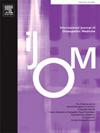骨科诊疗范围内的叹息循证方法
IF 1.5
4区 医学
Q2 MEDICINE, GENERAL & INTERNAL
引用次数: 0
摘要
整骨疗法在理论模型、治疗呼吸系统疾病的方法和使用呼吸技术进行治疗时都非常重视呼吸功能。研究呼吸的不同参数将是深化呼吸在整骨疗法实践中应用的一种方法。在这方面,叹息是一个值得关注的临床要素。骨科灰色文献中有大量在经验框架内使用叹息的例子,并在失忆、诊断和治疗阶段进行了解释。骨科医生对叹息的经验应与现有的实验数据进行比较,以提高骨科治疗的质量。据我们所知,目前还没有专门针对整骨疗法中叹息现象的研究,但有关叹息的心理生理学数据正在不断增加。这篇叙述性综述介绍了有关叹息现象的科学数据,并结合整骨疗法实践中遇到的咨询原因,介绍了叹息的生理和病理生理条件。讨论了叹息作为各种疾病诊断工具的作用。治疗途径探讨了叹息如何成为控制整骨疗法效果的一个因素,或成为治疗本身的一个积极因素。最后,还介绍了叹息作为诊疗过程中的一种交流方式。在这些不同的领域中,科学数据的贡献导致了与整骨疗法经验的若干矛盾。这篇综述描述了未来需要研究的途径,以澄清叹息在整骨疗法实践中可能扮演的角色。对实践的启示--叹息可用于多种临床病症的诊断--叹息综合征或叹息性呼吸困难是一种功能性呼吸障碍--叹息可用于诊疗过程中的交流--整骨疗法实践中叹息的可靠性首先需要一个一致的定义和方法,以便在临床环境中对其进行评估。本文章由计算机程序翻译,如有差异,请以英文原文为准。
Evidence-informed approach of sighs in the scope of osteopathic practice
Osteopathic practice attaches great importance to the respiratory function in theoretical models, in the approach to respiratory disorders and in the use of breathing techniques for therapeutic purposes. The study of different parameters of breathing would be a way to deepen the application of breathing to osteopathic practice. In this respect, the sigh is a clinical element of interest.
The osteopathic grey literature is rich in examples of the use of sighing in an empirical framework with interpretations during the anamnesis, the diagnostic and the therapeutic phases. Osteopaths' empirical experiences of sighing should be compared with available experimental data to improve the quality of osteopathic care. We are not aware of any study specifically related to sighing in an osteopathic context, but the psycho-physiological data on sighing is growing.
This narrative review presents scientific data on the phenomenon of sighing. The physiological and pathophysiological conditions of sighing are presented in the context of the reasons for consultation encountered in osteopathic practice. The sigh as a diagnostic tool for various conditions is discussed. Therapeutic avenues explore how sighing could be an element in controlling the effects of osteopathic treatment, or an active element in the treatment itself. Finally, the place of the sigh as an element of communication within the consultation is described. In these different fields, the contribution of scientific data leads to several contradictions with the osteopathic empirical experience. This review describes avenues of future research needed to clarify the role that sighing might play in osteopathic practice.
Implications for Practice
- •The sigh could be used in several clinical conditions for diagnostic purposes
- •The sigh syndrome, or sighing dyspnea, is a functional respiratory disorder
- •The sigh could be used for communication purposes within the consultation
- •The reliability of the sigh in osteopathic practice first would require a consensual definition and methods to evaluate it in a clinical context
求助全文
通过发布文献求助,成功后即可免费获取论文全文。
去求助
来源期刊
CiteScore
2.20
自引率
36.80%
发文量
42
审稿时长
3 months
期刊介绍:
The International Journal of Osteopathic Medicine is a peer-reviewed journal that provides for the publication of high quality research articles and review papers that are as broad as the many disciplines that influence and underpin the principles and practice of osteopathic medicine. Particular emphasis is given to basic science research, clinical epidemiology and health social science in relation to osteopathy and neuromusculoskeletal medicine.
The Editorial Board encourages submission of articles based on both quantitative and qualitative research designs. The Editorial Board also aims to provide a forum for discourse and debate on any aspect of osteopathy and neuromusculoskeletal medicine with the aim of critically evaluating existing practices in regard to the diagnosis, treatment and management of patients with neuromusculoskeletal disorders and somatic dysfunction. All manuscripts submitted to the IJOM are subject to a blinded review process. The categories currently available for publication include reports of original research, review papers, commentaries and articles related to clinical practice, including case reports. Further details can be found in the IJOM Instructions for Authors. Manuscripts are accepted for publication with the understanding that no substantial part has been, or will be published elsewhere.

 求助内容:
求助内容: 应助结果提醒方式:
应助结果提醒方式:


